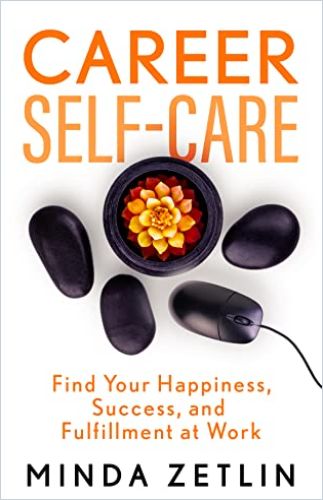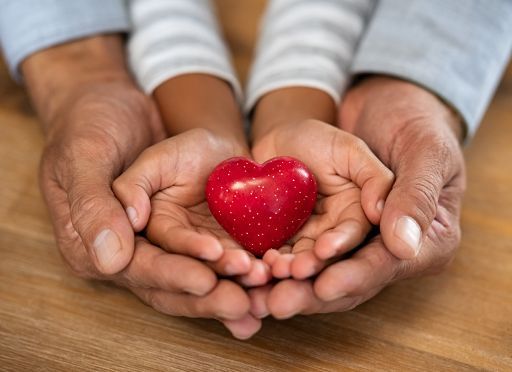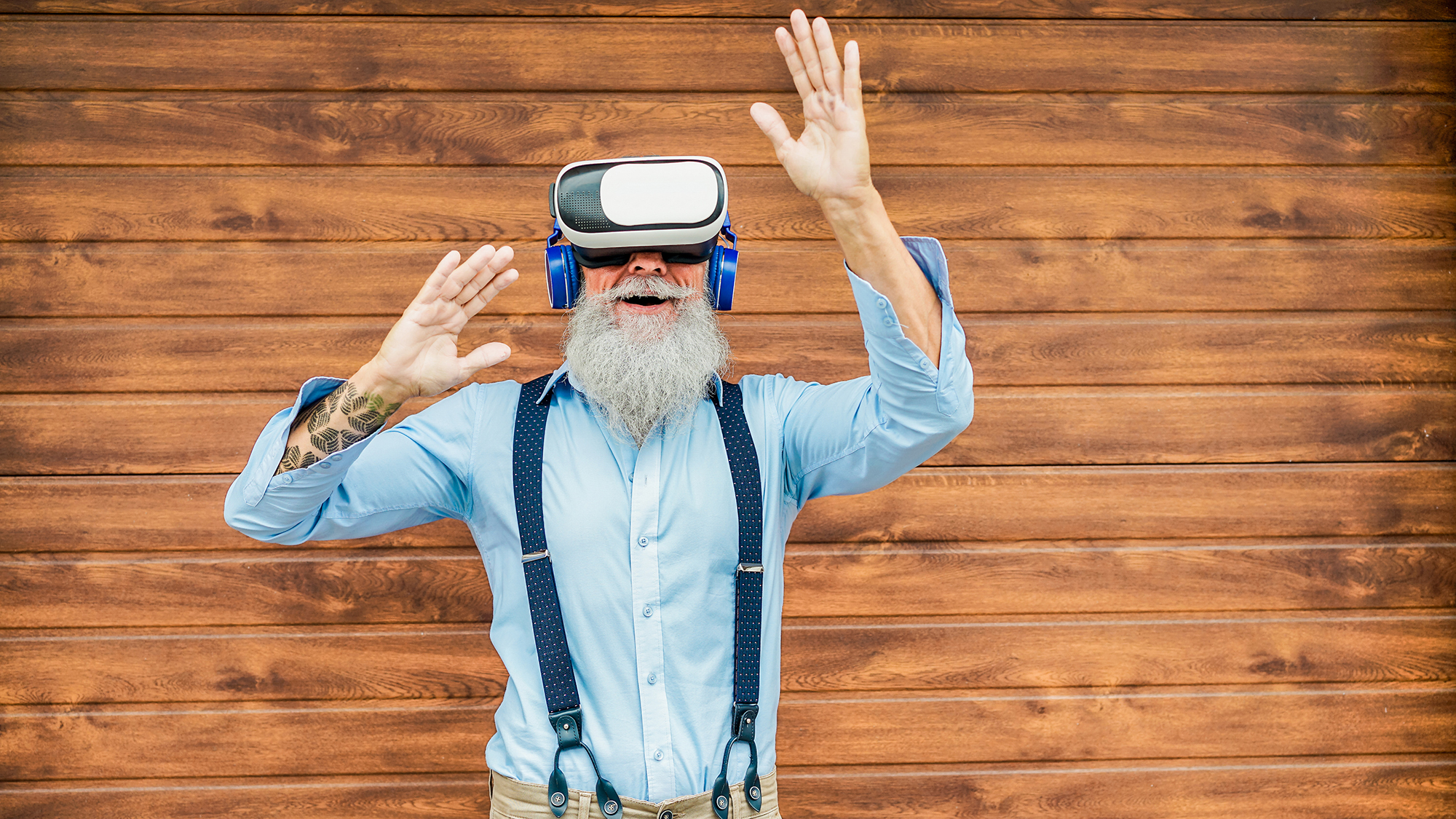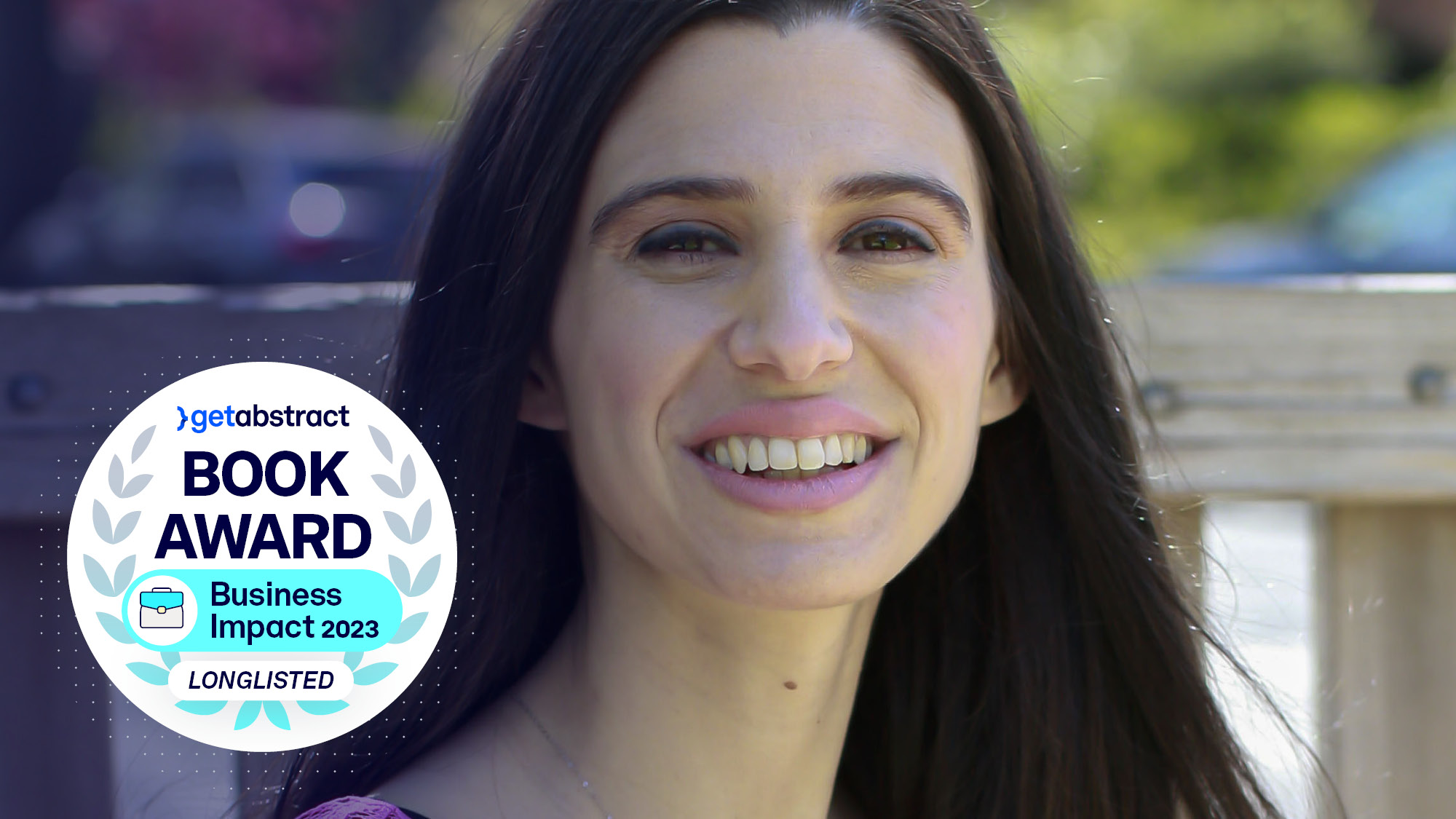“Stop Expecting Success to Arrive and Make You Happy”

Author and Inc.com columnist Minda Zetlin’s book Career Self-Care is full of insights and actionable advice to help you strike a better work-life balance while navigating a successful career. It starts with taking self-care seriously.
Self-care often feels indulgent, something to be done in your spare time that you may schedule but then never get the time to actually do. You argue that, in fact, self-care is essential to productivity. What do you mean when you talk about self-care, and how does it make you more, not less, productive?
Self-care is one of those terms that is extremely vague and sometimes people think you mean massages, going to the spa, lighting scented candles and things like that. And while I love doing all those things, when I talk about self-care in relation to career and as an important element of success, I’m really talking about things that are a bit more fundamental.

For instance?
When we talk about self-care, that means:
- Time to step away from work, get in touch with your own thoughts and priorities, and get some perspective. So frequently people say they have great ideas when they’re in the shower or when they’re out walking or fishing. Journaling can be great for this—also, yoga or meditation. People find meditation scary, but meditation can be just a couple of minutes. It can be just a few breaths. All of that helps you come into yourself and focus and is good for both you and your work.
- Taking time to socialize and be with other people. Participating in a community turns out to be incredibly important for brain function and even for longevity.
- Spending time outdoors. Getting into nature is very good for thinking, brain function, mood and even healing. Apparently, people in hospitals who can see nature outside the window heal faster than those who can’t.
- Plenty of research shows exercise is important for mood, health, longevity and brain function. You don’t have to hit the gym five times a week. It should be something you enjoy.
- And just taking time to do what you enjoy.
Plus the basics – good sleep and diet?
The importance of sleep and rest is huge. Lots of research shows this. Proper nutrition is also an element of self-care and brain function and essential to productivity too. All these elements come together to make you both happier and more effective at your work.
And how does self-care contribute to success?
Unless the work you do requires no personality or cognitive ability, the person, the physical and emotional and mental person doing the work, is going to do that work a whole lot better when they’re in a good place. The catchphrase I sometimes use when I talk about this is “happy, healthy and at ease.” When you’re happy, healthy and at ease, you do your job better. There’s research that shows that, after 40 to 50 hours a week, just spending more time at work pretty quickly has diminishing returns. Brain expert Josh Davis says most of us can aspire to about two hours of real productivity a day if we’re in a good place. So getting to that good place is important and worth the investment of time.
You do your job better by actually taking care of yourself in a way so when you do work, you’re fully on and effective.
You talk throughout the book about letting your mind wander, that people need time to just kind of do nothing.
It’s true. This is, again, something that Josh Davis pointed out to me that’s really important. We do need to let our minds wander; our minds are designed to wander, evolution-wise. We need to keep our attention open for survival. Our normal mode is to focus, drift away, focus, come back. Davis says let your mind wander, but not to something too compelling. Look out a window, if you have one, because you’ll be interested for a while and then you’ll get bored and go back to what you were doing. The problem is we often struggle with ourselves over that, which isn’t helpful. I like the Pomodoro technique for focus work, which tells you to start and then stop for five minutes after 25 minutes. Beyond that, for creativity and connection, often your brain puts things together better while you’re not focusing on them. It’s very common to solve problems in your sleep for that reason.
Let’s talk about journaling. As a writer, this is probably a longtime habit for you. What are some top tips you use in journaling that really make a difference to your practice and productivity?
I call it “power journaling” in the book, and that’s really what it is for me. You’re right that this is a habit for me that goes all the way back to my teenage years. A lot of people find journaling intimidating or challenging, but, as with meditation, it doesn’t take much to get started. One of the habits I have that anybody could do because it takes less than a minute: I write two sentences in my journal before I go to sleep. The first one begins “Today, I –“ and then I write down good things that I accomplished that day or good things that happened that day. It’s one sentence and it’s super quick. Then I write “Priority for Tomorrow:” and one thing – it can only be one thing.
I like doing that right before I go to sleep because, as we were just saying, a lot of stuff happens in our brain while we’re sleeping. It’s good to prime it that way with something positive and with an idea for tomorrow right before sleep.
That’s a super easy way to get started if you haven’t journaled because it takes literally one minute. It’s not a big commitment. Or take maybe two minutes first thing in the morning or last thing at night to write down three things that you’re grateful for. That’s it. That puts you in a positive mindset.
Journaling almost feels a little lost as a habit in the digital age, but it’s so effective for organizing.
For me, journaling is a paper notebook and a fountain pen. But there are all different kinds of ways of journaling. Do it however you want to. Do it on your phone. It might be vlogging on your phone’s camera; that probably works great for some people. That’s actually how I work when I’m writing a speech. So, whatever journaling means to people – for some people, it might be doodling or artwork. It’s very individual and it’s infinitely customizable.
As you said, there’s a tension between reaching for big goals and also right-sizing expectations so you’re not disappointing yourself because you might not be able to reach some of those big goals. Become a New York Times bestseller was your example in the book.
A friend of mine really wanted to be a New York Times bestselling author. He had it tattooed on his chest in mirror image, so when he looked at himself in the morning, every morning, it said that he was this: a New York Times bestselling author. He’s an extreme sort of guy. He never became a New York Times bestselling author. But he moved on from that goal. For me, the lesson was it’s great to have big goals and to really go after those goals. Whether it happens or it doesn’t, we learn something valuable, or we get somewhere similar, like becoming an Amazon best seller. Then we can move on, whereas if we allow the fear of failing to stop us from trying, that’s worse, because we get stuck. We’re always dreaming, fantasizing or worrying: am I going to get there? If we never really try, then we never get past that.
What’s the “dirty little secret about success?”
The dirty little secret about success is that in some way there is no such thing. I’ve had this experience over and over, and I think most people have, that when something is way far away and it looks wonderful, you think: if I just got there, that would be success. But by the time you’re almost there or close enough that it becomes a realistic goal and plan, it stops looking like success anymore. We have to start out with that understanding that whatever we go after in life, we may get it, we may not, but we won’t necessarily feel successful when we get there. That’s another reason that journaling is great because it can give you a record of what those big dreams looked like once upon a time.
So what do you do about that? You stop expecting success to arrive and make you happy. You try to be happy where you are.
Feel good about yourself and confident in yourself where you are because, in a sense, you’re already there. Since there is probably no point in the future where you’re going to go, “Now I’m successful,” why not say that today? “Hey, I’m successful.” It might be scary thinking, if I think I’m a success, then I’ll stop really trying. But that’s not true. You can still try. You’re still going after your goals, but you’re already a success.
What is a mastermind group? What are the benefits? How is it different from a mentor relationship?
Well, a mentor relationship is generally one-on-one, even though you might have a bunch of mentors. A mastermind group is a group of equals. You’re sharing information rather than having somebody more expert helping you. Everybody helps each other because everyone comes to it with different expertise. If you take on the logistical pain-in-the-neckness of organizing it and also the social anxiety piece of reaching out to people and inviting them, that sort of puts you a step ahead because you’re creating something valuable that others can take advantage of without necessarily having to do a lot of work.
In my former writing group, The Glaring Omissions, we found the ideal size was 8 to 10. Smaller than that was too small; bigger was a bit unwieldy. But it depends what you’re trying to do and what your focus is. In a generic mastermind group, everyone gets together physically or virtually on some sort of schedule, maybe once a month. The Glaring Omissions met once every three weeks; too much more often than that can get hard on people’s schedules. Less often and you don’t keep that sense of community. People would bring either a piece of learning that they want to share or a problem that they have they want other people’s input on or people just get together and share. I’m in an ASJA (American Society of Journalists and Authors) mastermind group and we get together once a month. We go around and ask for news and needs: news you want to share and things you need help with. It’s as simple as that. When people say their needs, other people come up with suggestions or advice or resources or contacts.
Mastermind groups can be a powerful tool to advance your career.
Not every mastermind group will work and not every potential group member will be a good fit. Because of the nature of writing and writing groups, I was extremely picky about who we let into the group. People could join, but it was a whole long process. First, we review your writing, then we have to get to know you. Then maybe we’ll let you into the group. That’s one of the reasons I think that group had such longevity. I’ve seen too many writing groups fall apart because of one difficult person.
You spoke about women, especially mothers, trying to navigate their careers along with hectic schedules, periodic emergencies and guilt. What can you say to them about balancing essentials with self-care?
I have to start by saying I’m not a mother, I don’t have kids. And yet, because the book is in large part about work-life balance, and it’s so challenging for parents, I couldn’t leave that topic out. I talked to a lot of people about how they do it – experts in work-life balance and psychology as well as parents. One thing I learned is that the system we live in is not set up for parenthood to work. That’s just an unfortunate reality. The pandemic really exposed the cracks in the system. It also exposed that, whatever we may say about egalitarianism – and I know there are fathers out there who are the primary caregivers of their children – childcare is still, statistically, overwhelmingly a female problem that doesn’t really have a good solution.
So, whatever struggle you’re having about being a parent and having a career at the same time, it’s a struggle because you’re dealing with a system that’s not designed to work for you.
In a lot of organizations, you’re dealing with a system that is liable to belittle you. People will say, “Oh, Ashley has to go pick up her kids again.” And, frustratingly, the person saying that is likely to be a man and likely to be a man who has kids or had kids at some point and somebody went and picked up those kids, but it wasn’t him. So in his mind, it’s not something that an employee or an executive or somebody who’s ambitious about their career should have to do.
You talk about dealing with guilt…
I heard from everybody I talked to about this that guilt is just unavoidable. You feel guilty about work when you’re with your kid. You feel guilty about your kid when you’re at work. And if you take a little time to do some of the self-care things we just talked about? Then you feel triply guilty. Individual parents and families figure this out, or sometimes they don’t or they can’t. Or the way they figure it out is too miserable, so some member of the family, typically the mother, winds up giving up their job or part of their job. That’s a shame unless that’s something the parent really wants to do. It’s a conundrum.
Figuring out what works and knowing that it’s not going to be a perfect solution and you’re probably going to be unhappy with it much of the time is just the best you can do. So, give yourself a break. Children grow, times change, jobs change. Nothing is going to stay the same. Try not to let it make you crazy. Despite whatever’s going on in the economy, at this time in history, people have more choice over where they work and what jobs they have than in the past. So take advantage of that to choose an employer that will help you make this balance work, with remote work, flexible work, whatever can work.
How can mindfulness help you in the face of the slings and arrows everybody faces daily? And why is happiness so important to success?
There’s a chapter in the book called “None of This is Worth It if You’re Not Happy.” I really believe that. I think that’s probably a particularly American viewpoint because people in different cultures would say, “Well, there’s duty and there’s family and there are other things that should come before your own happiness.” I accept that, but I also think we need to prioritize and take care of our own happiness. For that chapter, I interviewed Gretchen Rubin, who did a lot of research on happiness. She points out that people who are happier are physically healthier, do better at their jobs, are less likely to commit crimes and more likely to be civil members of the community. They’re more likely to vote.
All kinds of good things come out of you being happy. It makes everybody around you better.
The slings and arrows will come. Mindfulness, both at work and in life, is a really good way to balance that out. This brings me back to meditation. I don’t like pushing meditation too much because usually people already like it or they are scared to try it.
But you did make it seem less scary.
Oh, good. It truly can be something as simple as stopping in the middle of what feels like a crisis and closing your eyes and taking a few deep breaths. You’re engaging the power of meditation just by doing that.
And how does mindfulness help people cope?
We started this conversation talking about heat waves and we’re all in the middle of some scary times right now. That’s reality. On an individual basis and as a society, there’s a lot we need to do about it and we can and must do about it. But there’s also the reality that no matter what we do, in the short term at the very least, climate impacts are going to get worse and not better. So how do we live in this world knowing all the things that are difficult about it? Of course, there are many ways that the world is getting better, too, but this thing about what’s happening to the planet is not something we can ignore, even people who think that they can.
There was an incredible commencement speech this spring by [American writer] Margaret Renkl where she acknowledged that we’re in a really difficult time. She was speaking as a representative of the older generation to people graduating college who are going to have to deal with this long after the rest of us are gone. She said, “You know these are hard times. But remember that even with everything going on, the world is beautiful and basically people are good. If you remind yourself of that, even during tough times, the rest of it becomes more manageable.” Even in a hopeless situation, the only way you’re going to make things better is if you believe that you can and you hope that you can. That brings me back to happiness. Happy people, among other things, are more effective at changing the world, or at least they have a vision for how things can be good.
A way to move forward into the future. And they probably get a good night’s sleep, too.
Yes, getting a good night’s sleep is always, always important.
About the Author
Business journalist and author Minda Zetlin helps people and organizations set priorities and reach their goals. She writes the “Laid-Back Leader” column at Inc.com. Find out more at MindaZetlin.com.








